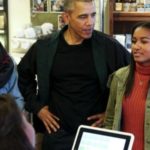Table Manners: An Essential Aspect of Early Childhood Education
William Hansen, a leading etiquette expert who instructed Prince William on British royal protocol, once said, “A refined person can be identified by their table manners, which reflect their family background and education.”
During mealtimes, some children tend to throw food and create a ruckus, while others eat attentively and quietly. This stark contrast highlights the importance of family education and the values instilled in children from a young age.
Educating young children doesn’t have to be complicated; it can start with daily habits like mealtime etiquette. For example, teaching them to offer food to adults first, not to be picky eaters, to avoid making smacking noises, and to refrain from talking with a mouthful of food. The early years of a child’s life are like a blank canvas, and establishing these rules early on will help them develop and maintain good behavior before bad habits can form.
Etiquette in Public Places: Nurturing Considerate Citizens
It can be uncomfortable for parents and bystanders alike when children scream or misbehave in public spaces. Teaching children proper etiquette in public places is essential. A well-behaved child who follows rules and exhibits good manners is often seen as a reflection of their family’s values and upbringing.

Teaching children to behave appropriately in public is of utmost importance.
Discipline in Study and Rest: Building a Foundation for Success
For children, discipline is key to forming good habits that will shape their behavior and, ultimately, their future. As the renowned psychologist William James once stated, “Habit takes over from action, character takes over from habit, and destiny takes over from character.”
Many parents have the habit of staying up late and waking up late, which their children tend to emulate. Maintaining a habit of early bedtime and early rising can be challenging for adults and children alike. However, a disciplined routine of study and rest is not only crucial for a child’s health and cognitive development but also lays the foundation for self-discipline.
Encouraging Independence: Fostering Self-Reliance and Confidence
According to the Italian educator and physician, Dr. Maria Montessori, parents should create an environment that encourages children to explore and challenge themselves. Before implementing this rule, it is vital for parents to instill independence in their children by encouraging them to do things within their capacity, such as dressing, eating, and tidying up after themselves. This approach nurtures self-respect, confidence, and a sense of personal responsibility.
No task is too small for a child to learn and master. Instead of turning them into “giant babies” dependent on their parents, allow them to try and improve with each attempt. Only then will they have the opportunity to enhance and perfect their skills.

Parents should create an environment that encourages children to explore and challenge themselves.
The Habit of Punctuality: A Mark of Respect and Success
Teaching children the value of punctuality should start from a young age, as it is better to keep others waiting than to be the one waiting. Punctuality is often seen as a key indicator of success. Parents should instill in their children the understanding that making others wait is not a given right. In reality, very few things in this world are entitled to us.
Encouraging Decision-Making: Nurturing Independence and Exploration
Dr. Maria Montessori believed that parents should allow their children the freedom to experience and discover new things. Before implementing this rule, it is crucial for parents to learn to let go. In many families, it is common for parents to assist their children with daily tasks such as feeding, dressing, and bathing.
However, as children grow older, they can and should take on these tasks independently. For example, a six-year-old child is perfectly capable of dressing, feeding themselves, and putting away their toys. These small tasks foster a sense of responsibility, self-respect, and personal initiative.
Some parents worry that allowing their children to do things independently will take more time and yield less-than-perfect results, so they opt to do things for their children to avoid the hassle. In reality, mastery comes with practice. Only by letting children try and make mistakes can they learn and improve.

Allow children the freedom to experience and discover new things.
Respect for Property: Understanding Ownership and Boundaries
The renowned physicist, Pyotr Leonidovich Kapitsa, asserted that after the age of two, children begin to clearly distinguish between “yours” and “mine.” Therefore, parents should establish this rule early on to teach children about ownership and respect for others’ belongings. Each person has a right to their possessions.
As children reach the ages of three to four, they develop specific preferences for the placement of their belongings, playtime, and lending agreements. Parents should lead by example by always returning items to their proper places and respecting their children’s ownership. Teaching this rule early on will foster a sense of order and respect for others’ property.
Politeness and Apologizing: Building Character and Accountability
Before children turn six, it is crucial to teach them polite behavior and good manners. This helps them develop self-awareness, adjust their behavior, and take responsibility for their actions by acknowledging and correcting their mistakes.
When children learn to apologize after making a mistake, it demonstrates their understanding of the consequences of their actions and their willingness to learn from them. This not only contributes to their character development but also lays a solid foundation for their adulthood.
Understanding Boundaries: Fostering Responsibility and Respect
Children who understand the boundaries between themselves and others tend to be more responsible and compliant with rules. These boundaries serve as guidelines for what is permissible and what is not.
According to Dr. Montessori, there are three fundamental principles to keep in mind: do no harm to oneself, do not disturb others, and do not damage the environment. Children should be aware of these boundaries in their actions and be held accountable if they cross them.
Learning Tips for Parents: 12 Japanese Techniques to Use with Your Children
Discover the 12 principles of teaching children in the traditional Japanese way that parents can learn with Dien May XANH! By instilling these principles when your children are young, you can ensure that they grow up to be obedient, smart and polite, the hallmarks of a successful education in Japan.
“Creating Lasting Memories: 10 Tips for Strengthening the Father-Child Bond”
Are you looking for effective ways to create a strong and close relationship with your child? If so, this article is for you! Find out 10 creative ways to nurture the father-child bond and make the relationship between you and your child more meaningful. These simple tips can help you create a special bond with your child and build strong emotional ties.



































